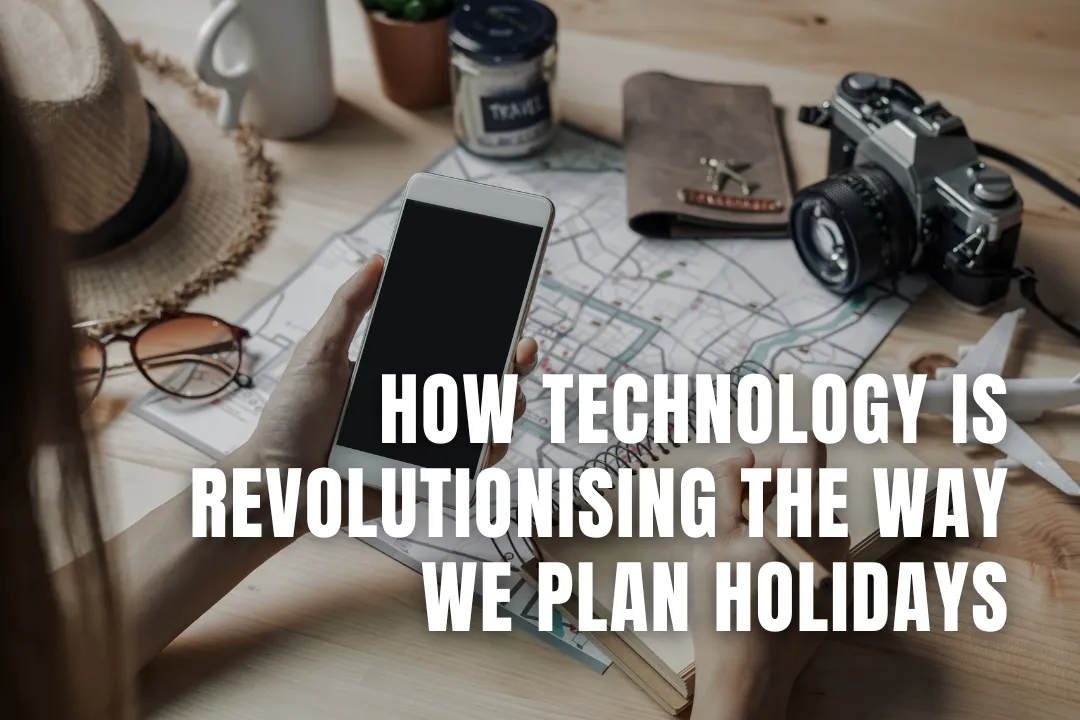
The way we travel has dramatically evolved over the past few decades, but perhaps no shift has been as transformative as the rise of digital technology. From AI-powered itinerary planners to mobile boarding passes, technology is not only streamlining the logistics of travel but also enriching the entire holiday experience. Today, planning a holiday no longer requires endless hours flipping through brochures or relying on travel agents. Instead, a few taps on a screen can bring the world to your fingertips.
Gone are the days when planning a trip meant booking appointments at brick-and-mortar travel agencies or waiting in long queues at ticket counters. Thanks to the internet, travellers now have access to a wealth of information and tools that make trip planning easier, faster, and more personalised than ever before.
Websites and apps allow users to compare flight prices, read hotel reviews, and book accommodations within minutes. With platforms like Google Travel, Expedia, and Airbnb, users can discover destinations, organise activities, and even sync travel plans to their calendars. The entire process of planning has become efficient, transparent, and increasingly customizable.
Artificial Intelligence (AI) is playing a significant role in shaping travel decisions. AI algorithms analyse user behaviour, preferences, and previous trips to offer tailor-made suggestions. Whether it's recommending the best time to visit a particular city or suggesting hidden gems based on your travel history, AI enhances the personalisation of holiday planning.
Voice assistants like Siri, Alexa, and Google Assistant also help travellers check weather conditions, translate languages, and navigate new cities, hands-free. AI chatbots are now integrated into many travel platforms, offering 24/7 customer support and real-time problem resolution, significantly improving the traveller's experience.
Virtual Reality (VR) and Augmented Reality (AR) are game-changers in the way people preview and explore destinations before booking. Many tourism boards and travel agencies offer virtual tours of cities, resorts, and landmarks. This immersive experience allows travellers to "walk" through their hotel rooms or "stand" atop scenic viewpoints before deciding on their next adventure.
AR apps enhance on-the-go exploration by overlaying helpful information on the screen while walking through museums, navigating public transport, or identifying historical monuments. These tools bring destinations to life and help travellers feel more confident when exploring unfamiliar locations.
Smartphones are now indispensable travel companions. From digital boarding passes to mobile hotel check-ins and ridesharing apps, mobile devices allow travellers to manage every aspect of their trip seamlessly. GPS apps like Google Maps and offline alternatives such as Maps.me have replaced bulky paper maps, offering accurate navigation even without internet access.
Moreover, mobile banking apps, currency converters, and real-time language translation apps ensure that international travel is less daunting. For many travellers, the smartphone is now the ultimate travel hub, eliminating the need for multiple physical tools and documents.
Social media platforms like Instagram, TikTok, and Pinterest have become powerful inspiration engines. Travellers often discover destinations through curated travel photos, reels, and personal vlogs. This visual content offers a glimpse into real-life travel experiences, allowing users to imagine themselves in those locations.
Many travellers now plan their itineraries around "Instagrammable" spots or viral travel trends. Influencers and travel bloggers offer practical insights, reviews, and insider tips that aren't always available through traditional travel channels. As a result, destinations that were once off the beaten path are now gaining popularity thanks to social sharing.
The ability to book holidays online has redefined the meaning of convenience. Travellers can compare prices, check availability, and finalise their plans without leaving their homes. The flexibility to book flights, accommodations, car rentals, and activities through a single platform eliminates the hassle of juggling multiple bookings.
Furthermore, dynamic pricing algorithms allow users to find the best deals and take advantage of discounts or promotions in real time. Many platforms offer flexible payment options and travel insurance add-ons, giving travellers more control over their budget and peace of mind.
Packing has also undergone a digital transformation. Smart luggage, equipped with GPS tracking, USB charging ports, and weight sensors, is becoming increasingly common. Travel enthusiasts now use tech-integrated travel gear to stay organised and connected on the go.
A reliable travel backpack with USB charging capabilities, RFID protection, and anti-theft features has become an essential item for tech-savvy travellers. These modern accessories not only provide convenience but also offer security and functionality, especially for solo or long-term travellers.
Technology empowers travellers to create experiences tailored to their interests. Niche travel apps offer curated experiences like food tours, cultural immersions, adventure sports, and sustainable travel opportunities. Algorithms track preferences and generate customised itineraries, ensuring that every trip feels unique.
In addition, platforms like Couchsurfing, Workaway, and Meetup enable cultural exchanges and social connections, helping travellers engage with local communities instead of being passive tourists.
Even traditional travel touchpoints like airports are getting a tech upgrade. Biometric check-ins, automated security screening, and brilliant luggage handling are improving efficiency and reducing wait times. Many airports now offer apps that update passengers on gate changes, boarding times, and baggage carousel numbers.
Those looking to fly on holidays from Glasgow Airport, for instance, can now enjoy mobile check-ins, digital boarding passes, and even access real-time information on dining and retail options while waiting for their flights, making travel less stressful and more enjoyable.
Technology has revolutionised holiday planning by making it more accessible, personalised, and immersive. As innovations continue to evolve, we can expect an even more seamless travel experience in the future, from AI-curated journeys to VR-based hotel previews and more innovative airport logistics.
With the right digital tools and a touch of wanderlust, planning the perfect getaway has never been easier.